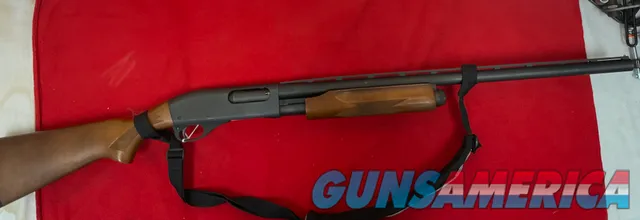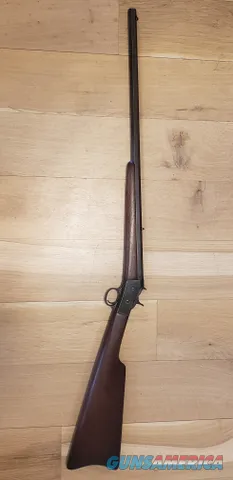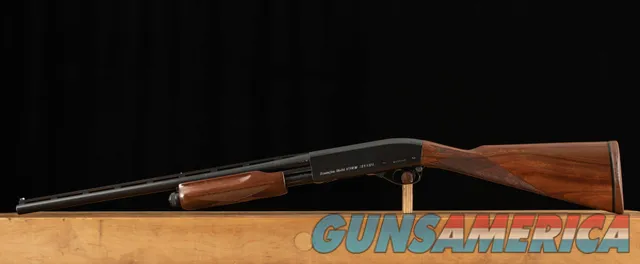
Estimated reading time: 11 minutes
This week’s column about Albert Sydney Johnston is being drafted on location. I’m sitting in a folding chair overlooking Ruggles’ Battery on the Shiloh National Battlefield. It is a beautiful June morning. As a sort of professional word monkey, I just cannot help but be inspired.
Table of contents
Of Miniguns and Minie Balls…
The movie Predator nearly derailed my military career before it got started. I was at Fort Riley, Kansas, for training and got something like an eight-hour pass. These were the days before the Internet, so three buddies and I coordinated a critical mission telephonically. Predator was playing in theaters, and we simply had to see it. The movie poster depicted Arnold Schwarzenegger in his prime wielding an M-203 grenade launcher. No self-respecting red-blooded young American soldier could resist such a temptation.
The concept of the operation had us catching a cab into town for pizza followed by the matinee. We arranged with the Bell Cab Company to have a van waiting for us as soon as the final credits rolled. We calculated that we would get back to the training area with about 20 minutes to spare.
The movie was indeed life-changing. Amidst scads of groundbreaking visuals and classic testosterone-soaked lines, Jesse Ventura’s character Blain tearing about the jungle rocking an M-134 minigun from the hip was hands-down the most compelling. The film moved me.

Some Really Good Stuff
Arguably the best sequence of the lot was when Ventura and his mates were clearing out the jungle encampment. Blain and Richard Chaves’ character Poncho throw themselves against an overhang under intense fire. Poncho observes that Blain has been hit and is bleeding. Blain’s terse response is simply, “I ain’t got time to bleed.” Now hold that thought.

In 1785, the poet Robert Burns opined, “The best laid schemes o’ mice an’ men / Gang aft a-gley.” That polishes up to, “The best-laid plans of mice and men often go awry…”
On the cab ride back to post the driver got a radio call and turned around to retrieve another fare. No amount of cajoling on our part could dissuade him. By the time we got back to our company area, the formation had dispersed and our absence had been duly noted. We successfully talked our way out of the acute ramifications of our indiscretion. However, had it not been for the Bell Cab Company I’m sure I would have been Chairman of the Joint Chiefs by now.
A Long Time Ago on a Battlefield Far, Far Away…

For two horrible days in the Spring of 1862, this part of southern Tennessee was a meat grinder. The battle of Shiloh was named based on a small log church that graced the place. Nearly 24,000 Americans fell here. If slaughtered humanity per unit time is your metric, Shiloh was one of the bloodiest fights of the American Civil War.

In 1862 both sides were still finding their stride. US Grant helmed the Union Army of the Tennessee. Albert Sidney Johnston commanded the Confederate Army of Mississippi. It has subsequently been suggested that Johnston was arguably the most capable general officer of the war. Considering his competition included the likes of Lee, Longstreet, Stuart, and Jackson, that is high praise indeed.
READ MORE: Albert Patterson, the British SAS, and Gun Control Gone Mad
Federal forces staging from the Tennessee River were interdicting Rebel lines of communication. In layman’s terms, the Yankees were tearing up Southern rail lines. Without the railroads, the Confederates could not move their textiles to port or transport supplies for their armies. This had to stop. Albert Sidney Johnston set out to stop it.
Impenetrable
The battle was joined early on 6 April when Confederate scouts encountered Union pickets. As the fight rapidly evolved, Union forces defended a tenuous position that has come to be known as the Hornets’ Nest. The terrain around this area was described at the time as “impenetrable thicket.” Little has changed today. The space around the Hornets’ Nest is still just Cambodia-thick even now. Visibility was measured in feet. It would have been an undeniably hellish place to fight.

In an effort to dislodge the Federal defenders, the Rebels organized the most concentrated force of artillery yet accumulated during the war. Some 53 guns drawn from 11 Confederate batteries pummeled the Hornets’ Nest mercilessly for hours. I am looking down the reconstructed gun line as I type these words. The National Park Service has accumulated some 35 period-style cannon and placed them in the same locations where they operated back in 1862.
Available on GunsAmerica Now
Guts and Grit
To my left rear rode A.S. Johnston atop his war horse Fire Eater near a place now known simply as the Peach Orchard. The National Park Service has recently planted this area once again in peach trees. That seems pretty cool.
Soldiers of this era had challenges we cannot imagine. Particularly in the South, the logistics structures were simply not available to support large numbers of troops in the field. As a result, Rebel formations were frequently hungry. The Battle of Gettysburg, for instance, was precipitated by a Confederate force that advanced into the area in search of shoes.

When Johnston’s troops first pushed back Grant’s men and overran their encampment, several of the Confederate troops broke ranks to pillage the recently abandoned stores. Among them was one of Johnston’s Lieutenants. The General reflexively castigated the young man from his position atop Fire Eater.
“None of that, sir,” Johnston shouted. “We are not here for plunder.” Realizing he had embarrassed the young officer in front of his men, Johnston spontaneously picked up a tin cup from a table and announced, “Let this be my share of the spoils today.”
The Commander Falls…
Johnston strode back and forth, rallying his men and leading them forward against the most unimaginable of perils. Cannon rounds split the afternoon, while .58-caliber Minie balls buzzed like swarms of bees across the grassy fields. Suddenly, Johnston was struck by a single round.

In retrospect, there is a fair possibility the fateful shot was inadvertently fired by a Rebel infantryman. The round struck the Confederate General in the back of his right knee. Johnston obviously knew he was hit, but he was leading an army against an adversary roughly evenly matched in both numbers and firepower. This fight could go either way. There was quite literally no time to bleed.
The wound was serious but not acutely life-threatening. The heavy lead bullet had severed his popliteal artery, precipitating some prodigious blood loss. However, this most vital liquid ran down Johnston’s leg and filled his boot, masking the stigmata from both his staff and his men.

Losing General Johnston
After nearly an hour Johnston grew pale and began to slump in his saddle. Isham Harris, the Governor of Tennessee, was on Johnston’s staff and asked if he had been hit. The General replied simply, “Yes…and I fear seriously.”
Johnston’s staff officers removed him from his horse and took him down into a nearby ravine that was protected against enemy fire. A surgeon was summoned, but Johnston bled out prior to his arrival. Johnston’s aide later discovered a tourniquet unused in the General’s pocket.
Even if properly addressed, the wound would quite likely have cost Johnston his leg. Considering 75% of patients undergoing battlefield amputation during the Civil War died anyway, the odds were indeed stacked against him. However, the application of a tourniquet at the time of injury would have undoubtedly bought precious time. In the end, however, none of that mattered.

Rebel General PGT Beauregard assumed command once Johnston fell. He successfully pushed Grant’s forces back until they ran out of daylight. The massive artillery engagement directed against the Hornets’ Nest reached its apogee around 1700 on the afternoon of 6 April, the first day. With the sunlight fading, Beauregard had his forces go to ground to lick their wounds and prepare to begin again at first light. This decision has been second-guessed by historians from 1862 to the present day. It seems the greater logistics and manpower capabilities of the Union forces were destined to change everything in that one critical evening.
The Vagaries of Fate…

Between midnight and 0400, the Union Army of the Ohio under Don Carlos Buell disembarked at nearby Pittsburgh Landing on the Tennessee River. On the morning of 7 April, Beauregard found himself facing not one Union army but two. With no reserves worthy of the term and now grievously overmatched, Beauregard withdrew to the cover of Corinth.
Around 1830 on the second day God had His say. A massive thunderstorm formed over the battlefield and showered the area with hail. It seemed that even the Earth herself had had about enough.

Johnston, The Turning Point
Union casualties were tallied at 1,754 killed, 8,408 wounded, and 2,885 missing or captured. Confederate losses were 1,728 dead, 8,012 wounded, and 959 missing or captured. As the Federals retained the field, their dead were ultimately interred with some degree of organization. The site is still a national cemetery today. By contrast, their Confederate counterparts were buried in a series of five mass graves. The implication was that they were dumped into combat trenches en masse and covered as expeditiously as possible. Samuel B. Todd, brother of Abraham Lincoln’s wife, Mary Todd Lincoln, was counted among the Confederate dead. That was likely awkward conversation fodder at parties.
Confederate President Jefferson Davis confidentially stated to friends that he believed the death of Johnston to be, “the turning point of our fate” in the western theater of operations. The war in the South was a steady downhill slog from Shiloh to Appomattox. And to think it all hinged on a lucky shot to the knee, some simply legendary implacability, and one unused tourniquet.
*** Buy and Sell on GunsAmerica! All Local Sales are FREE! ***










Dr Dabbs have you ever visited my hometown of Gettysburg ? those reading this post make this a must. Thank you Dr D for inspiring us with theses great reads.
Doctor D when are you going to write a book? Your stories are awesome.
Doctor D, really wish you would write a book. Your stories are pretty awesome.
I always appreciate your military history stories (and all your stories, for that matter!) Thank you once again for some very engaging writing!
Great article. Good reading. I wonder if Samual Todd had not died, what their family reunions might have been like.
For someone like me, who has called Mississippi home for the overwhelming majority of my life, yet was born in Georgia, Shiloh figures prominently in my “what if” imaginings. I have forbears who fought at Kennesaw Mountain and other places trying to prevent or forestall Bloody Sherman’s rape of Georgia and Georgians. Had the round which struck Sherman’s hand at Shiloh been more accurate, perhaps Georgia may have fared somewhat better. It is also possible however, that it would have fared even worse. Thanks for the article, Will.
‘However, had it not been for the Bell Cab Company I’m sure I would have been Chairman of the Joint Chiefs by now.’
I think we would have a better commander too.
Another great story. Thanks.
Another great piece of history from DR. Dabbs. Keep them coming.